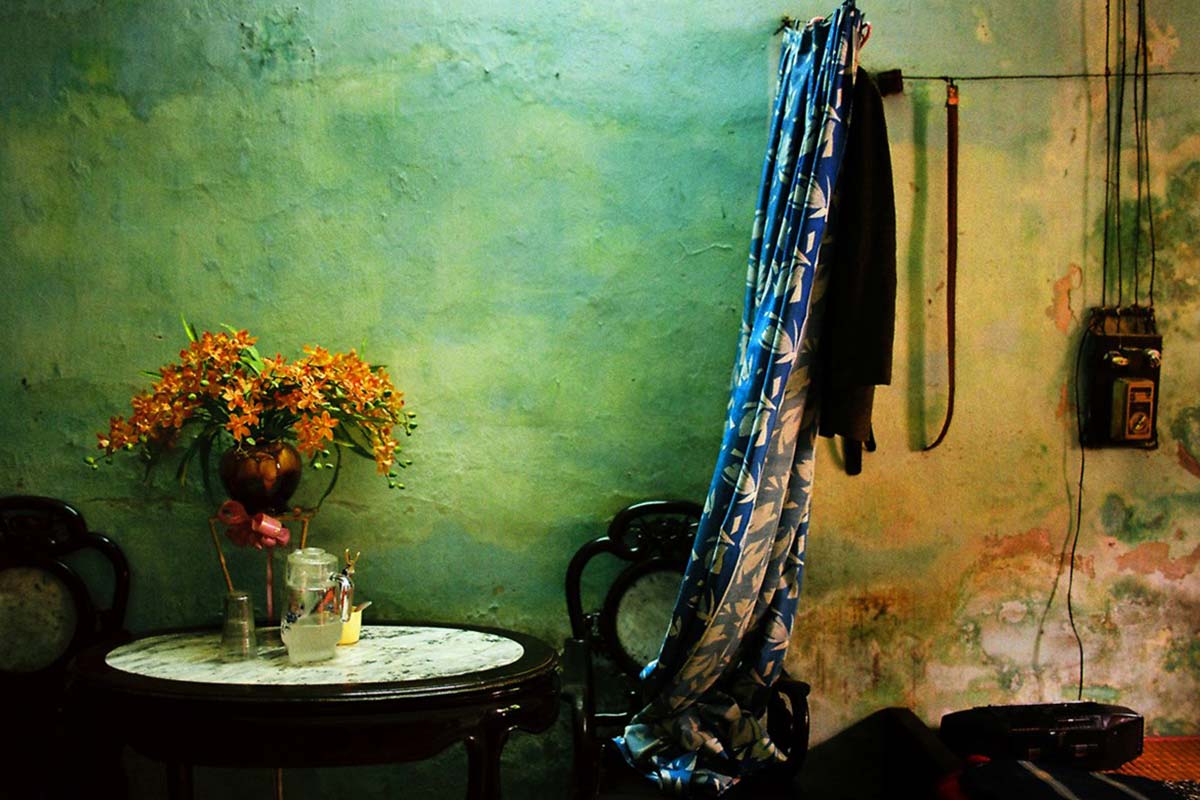
Maika does not need a lengthy introduction. She is the first Vietnamese to score a prestigious World Press Photo award, who has photographed and exhibited across Vietnam and around the world at a very young age. Been there, done that, yet Maika still works on projects about familiar subjects including her own father Hanoi where she was born and raised. Matca sits down with Maika to ask her about days when she was a newbie to photography, her thoughts about Hanoi and why she thinks taking pictures of what’s around us is an important practice.
You used to say that “Inside Hanoi” is an important series in your photography career. Can you share more about how you came to take these pictures?
My house used to be at Minh Khai, quite far away from the center of Hanoi. When I got into university and started reading books about Hanoi such as Vu Bang’s proses, I saw that they described a Hanoi very different from mine. People who lived in the Old quarter that I met complained a lot about how Hanoi had changed now, with too many shopping centers and new urban areas…In general, the surface of Hanoi had become so different. They were unhappy and quite bitter about that. I grew more curious then. When people said that the surface of Hanoi had changed, I wanted to delve deeper to see if what’s underneath had changed or not.
When I started taking photos of Hanoi, I wanted to document the alleyways first because they are really unique. The lane is extremely narrow but once you get inside, it came apart into a stair, a laundry drying yard or a communal kitchen for up to dozens of households. It’s pitch black outside but many sources of light come together inside. I took pictures of Hanoi in about 4-5 years, mostly during weekends when I had some free time. That process proved to me that Hanoi was actually not so different from my imagination. The surface could change but not the underneath, people did not have the opportunity to change. If everybody complained about how traditions were losing but I still witnessed them everyday, the best way was to capture them. That’s for myself first, if anybody sees the photos then it’s also a good thing.
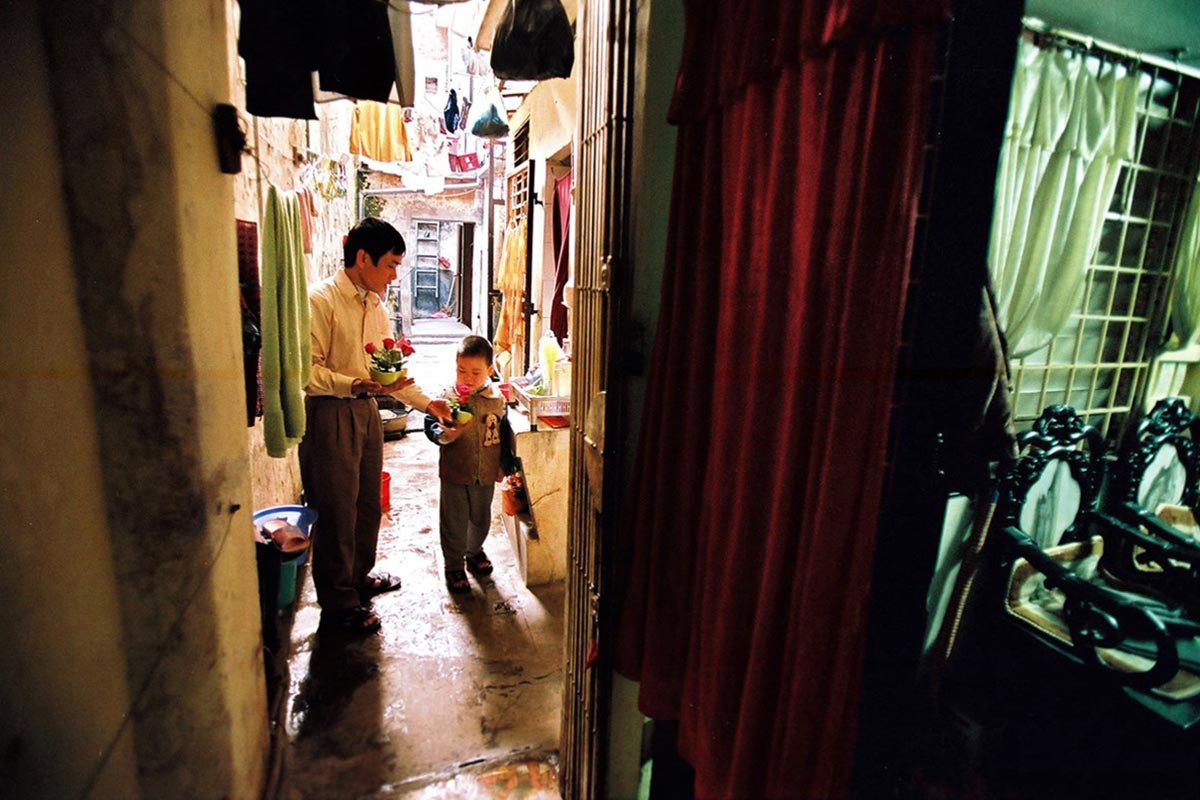
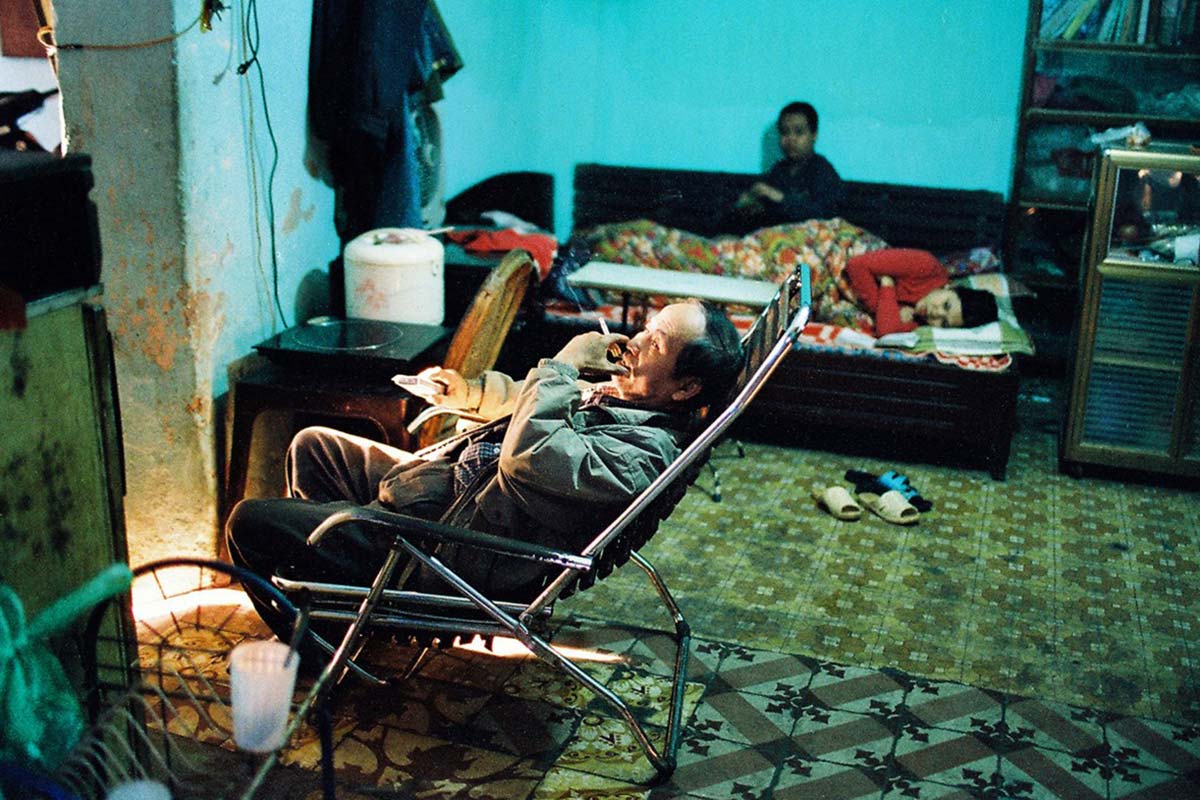
You once shared that taking photos of your own city is a recommended practice for photographers who are just starting out. Why is that?
It is first and foremost what is easiest to see and what you already have the knowledge of, which saves you time and money.
For instance, there was a market near where our family used to live. Every friend who came to visit me took photos of that market because it was so beautiful. But I never take photographs there and would instead went to the Old quarter. I saw it everyday, it became too familiar to be beautiful. It was when I just started out. Later on when I shot more, learnt how to see details and my aesthetics improved, I noticed that it was actually beautiful, I could totally make works here and did not need to go anywhere.
I took up photography in 2006, started out by shooting villages around Hanoi with paddy fields, farmers, agrimotors and all that. I was an university student back then, so I went out to shoot every weekend. After around two years I asked myself what the point of shooting those things was, they did not have any connection to me…I took many photos of wrinkly elder women as well, and my mom told me that “There’s a 80-year-old woman about to die in this house, why don’t you take pictures of her but old women in god-knows-where”. But still I did not photograph my grandmother, she had to go to a studio.
You need experiences to come to such realization. The more I take photos, the more I appreciate what’s around me. Sometimes it’s not that you do something because you like it but because you are aware that it’s what you have to do.
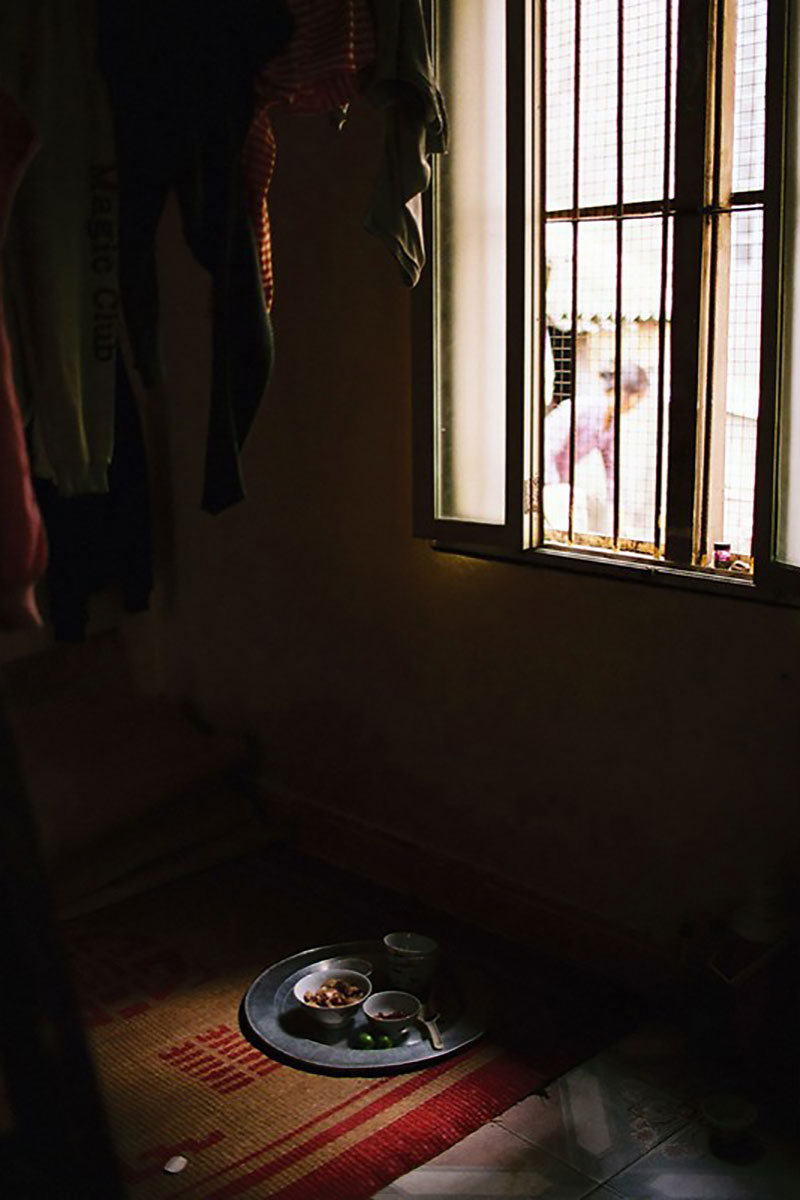
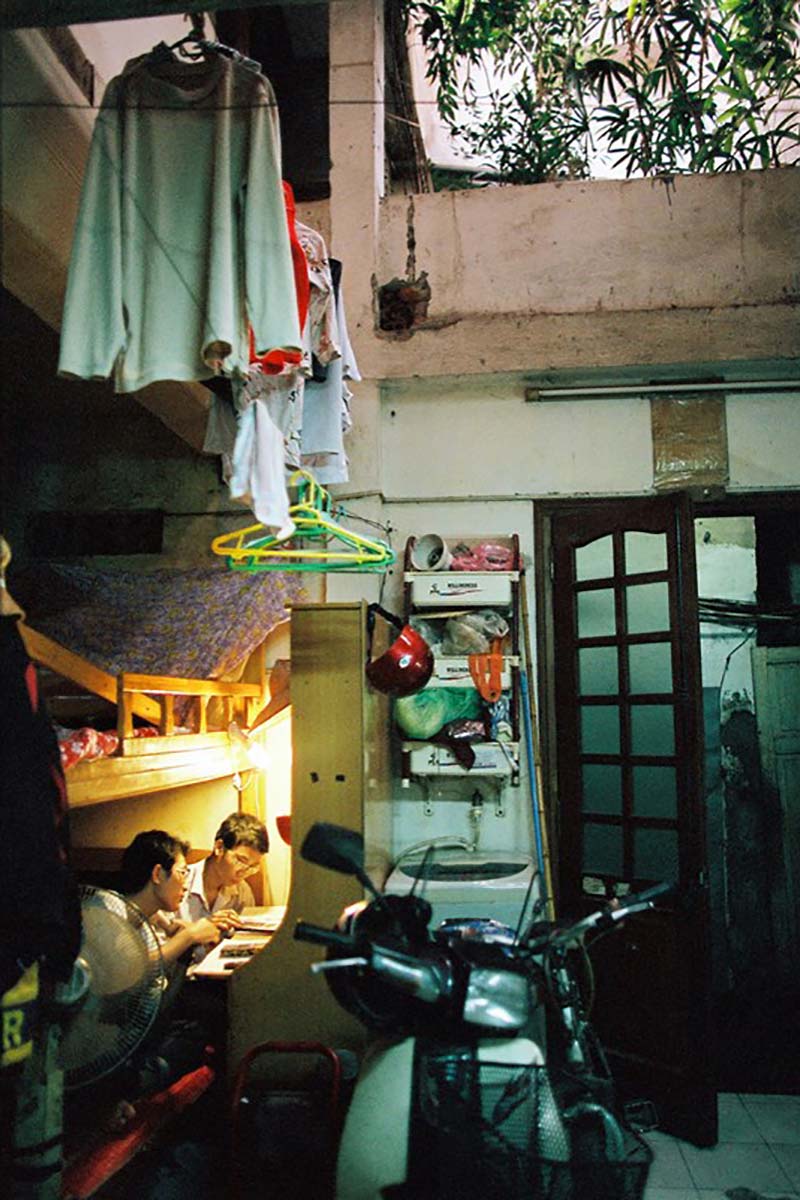
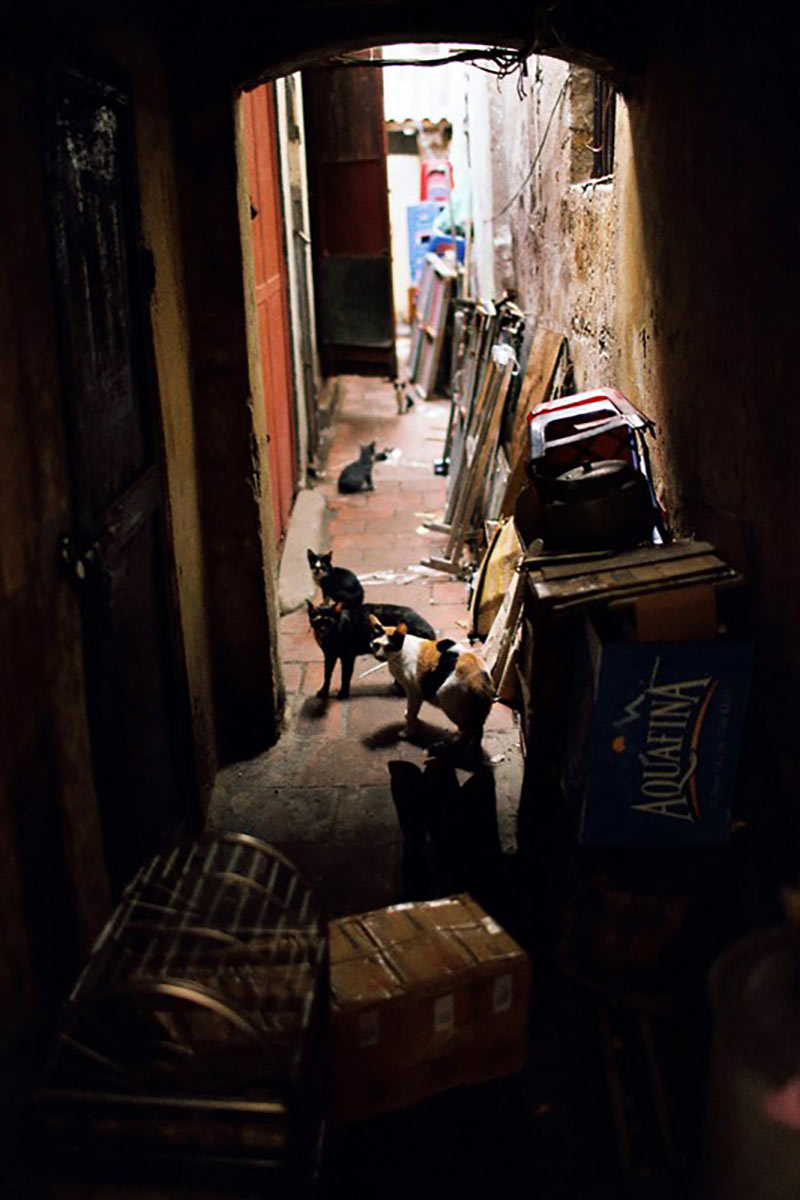
When we travel and our worldview changes, we will start forming comparisons between our own city and places we have been to…
When I was in school, I had a strong wish to study abroad, what a daydreamer. I always thought that Hanoi was so dirty for example. It’s plain ordinary, just a place I have always lived in, and if I were somewhere else I would be happier, such as in the quaint, elegant Europe. But when I was there, it was okay to stay for two weeks, but thinking about commuting on the train from one place to another everyday, being 2 hours earlier before the date…(laugh and shrug)
I think Hanoi is still the best. There is no place as energetic as Hanoi. In Europe, life is completely behind closed doors, you only see tourists on the street. I don’t really see the authentic life in such cities. But in Hanoi, everything is laid open on the street. I had a friend who was shocked when he was just walking around and saw people having dinner in their house. Hanoi has such positive energy. It transforms itself in different times of day and different seasons around the year. The more I travel, the more in love with Hanoi I am, it is a paradise for street photography.
When having lived here for some time and quite understood the place, do you still have any surprise when you are out shooting?
Yes, a lot. Even in an alleyway that I’ve been to many times, but after a year or two it will change, someone new will move in or some other passes away…
What is most distinct when I am shooting is that I learn to see details. There are a lot of things I won’t find beautiful if I don’t take photos, I will just find it old and dirty for instance. I won’t be able to see the architecture, the arrangement, the emotions, things with archival values. When traveling, I feel really empty if I don’t have anything to introduce my own place. When holding an exhibition, I always want to do something about Hanoi or Vietnam.
After each year, things around me change and how I look at them also changes. A photograph becomes valuable then. And I’m also forgetful. When looking at a photograph, I can instantly remember when was that, who I talked to, what happened next…Only photography can do that.
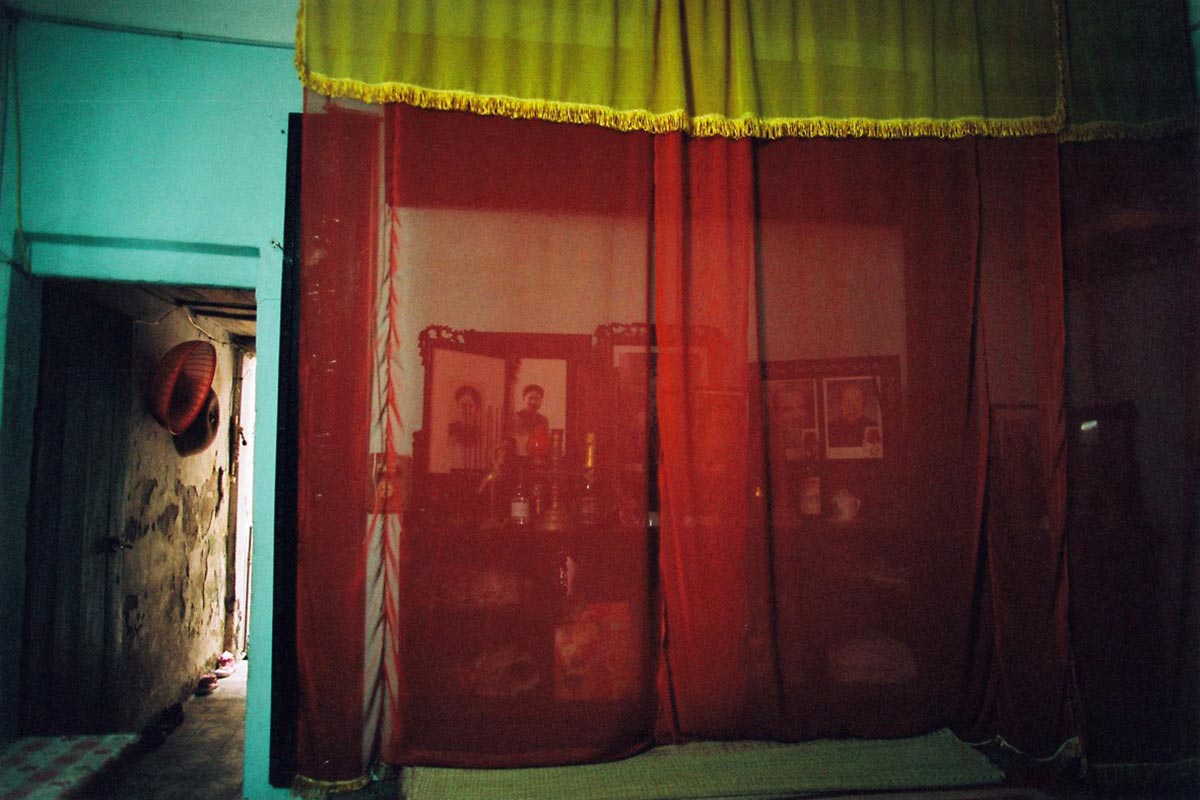
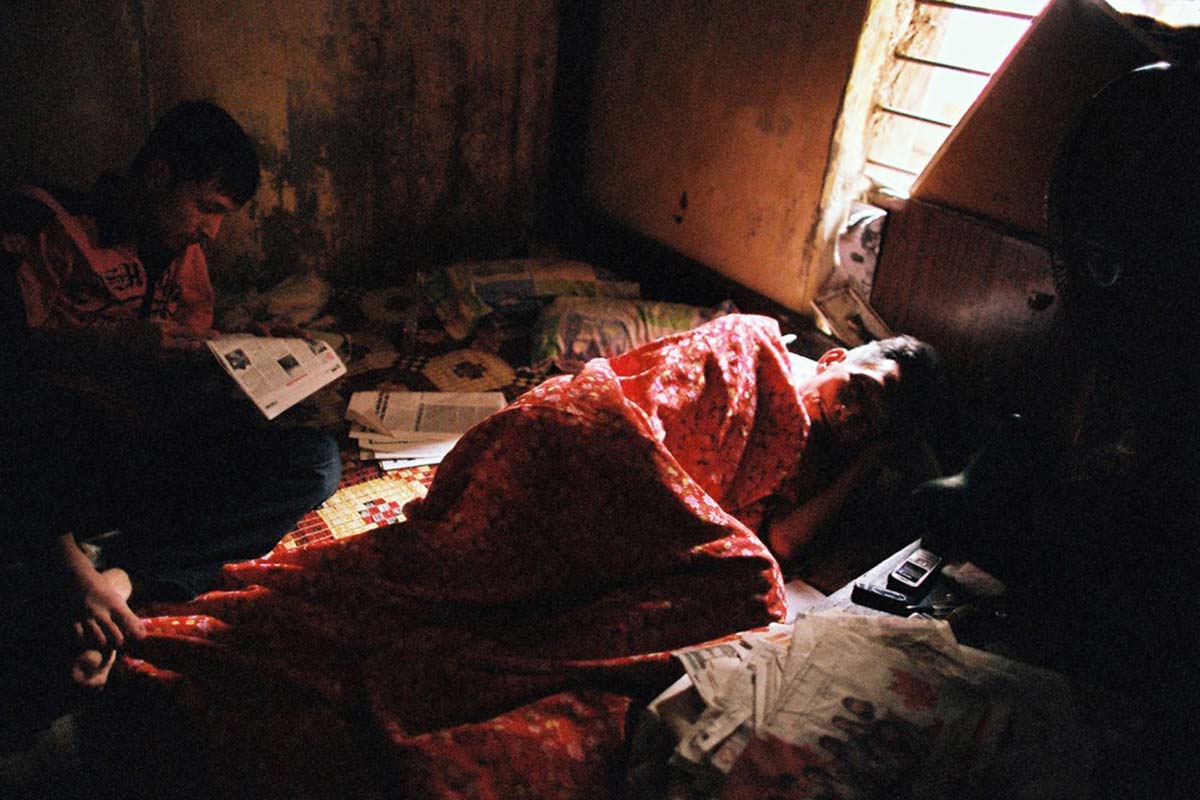
So when shooting your father in “Like My Father” series, looking at your family member as a character, do you realize anything about your father that you aren’t aware of before?
I had always been close to my father. He majored in philosophy, so before every project I always talked to him, he always helped me with theoretical aspects. When working on this project, my respect for him just grown deeper. When you are sick and ugly, you will not want anyone to see you, but he understood the requirement of my work. Before then my father was a big and handsome man, but once he’s sick, his weight dropped significantly and he even had crossed eyes. Yet he appreciated me documenting this moment of his life; despite being an ugly one, it was also a milestone. I thought that it’s time to do something for my family as I was really afraid whether he could overcome his illness.
Is shooting your family easier than strangers, because you already understand them and access is easier to get?
It is actually harder to get access from family members. With family, I myself have a barrier, and both I and my family are under pressure. They don’t know how they look in my eyes, how to act, whether to pose differently…I can never be satisfied because I understand them deeply and will never find a way to show everything on photos.
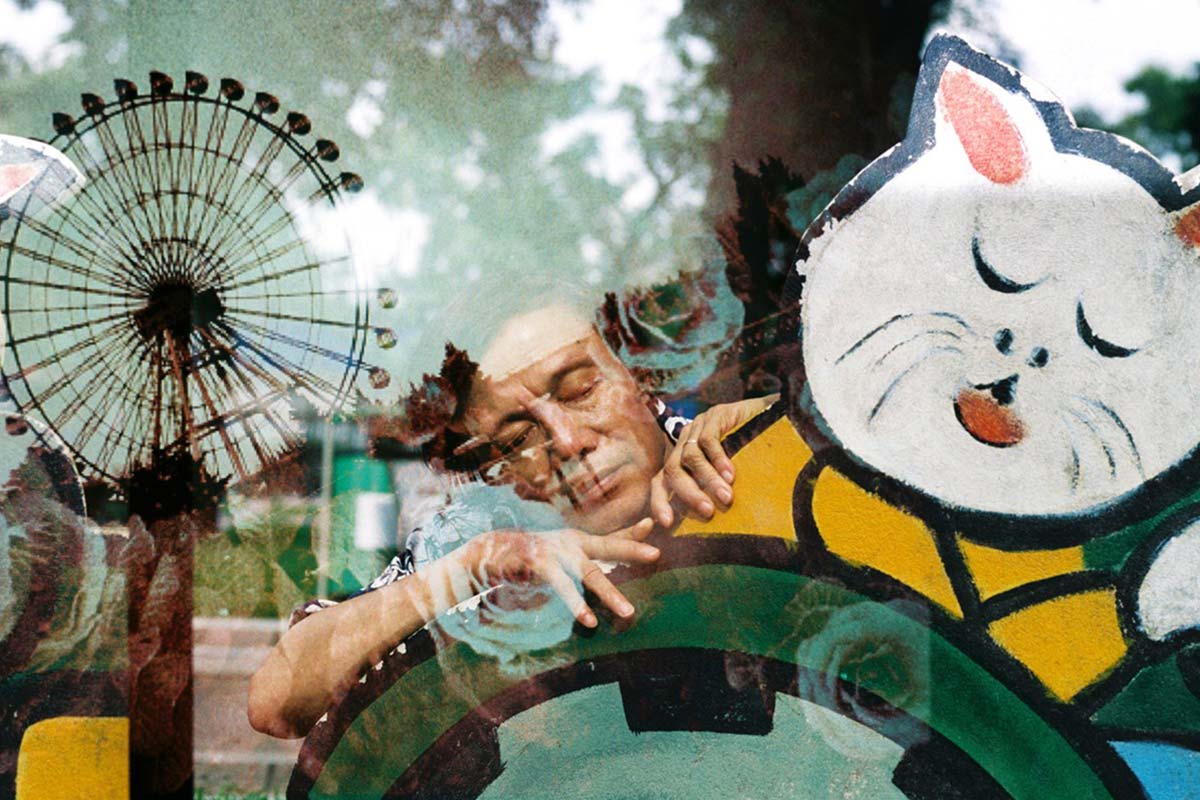
Do you think because you have photographed familiar things, you often try to pursue intimacy in other documentary projects?
Because I am an affectionate person. I can’t do differently. For instance, I’m unable to photograph crowds because I don’t have connections with these people. If we don’t talk, I don’t know how to photograph them. Any assignment with photographing crowds falls through, I simply cannot do it, it doesn’t fit me.
When the topics are personal, how do you deliver it to many people?
The most important thing is that you have to want to do it first. To deliver it is another story. A lot of interesting projects are not known by many simply because it’s a matter of time. I would say just do what you like, if it is aesthetically pleasing, many people will like it. You cannot control how many people could relate to what you do. I am only a storyteller, some will listen to me and some won’t.
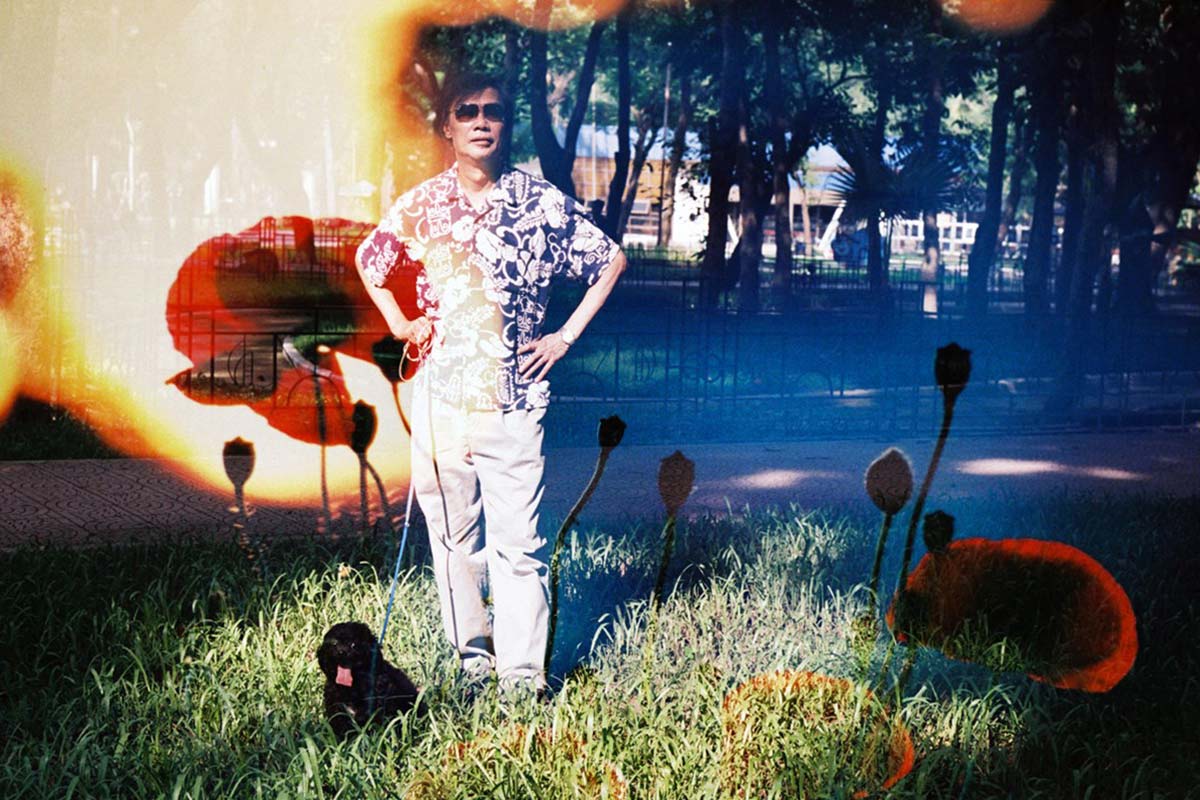
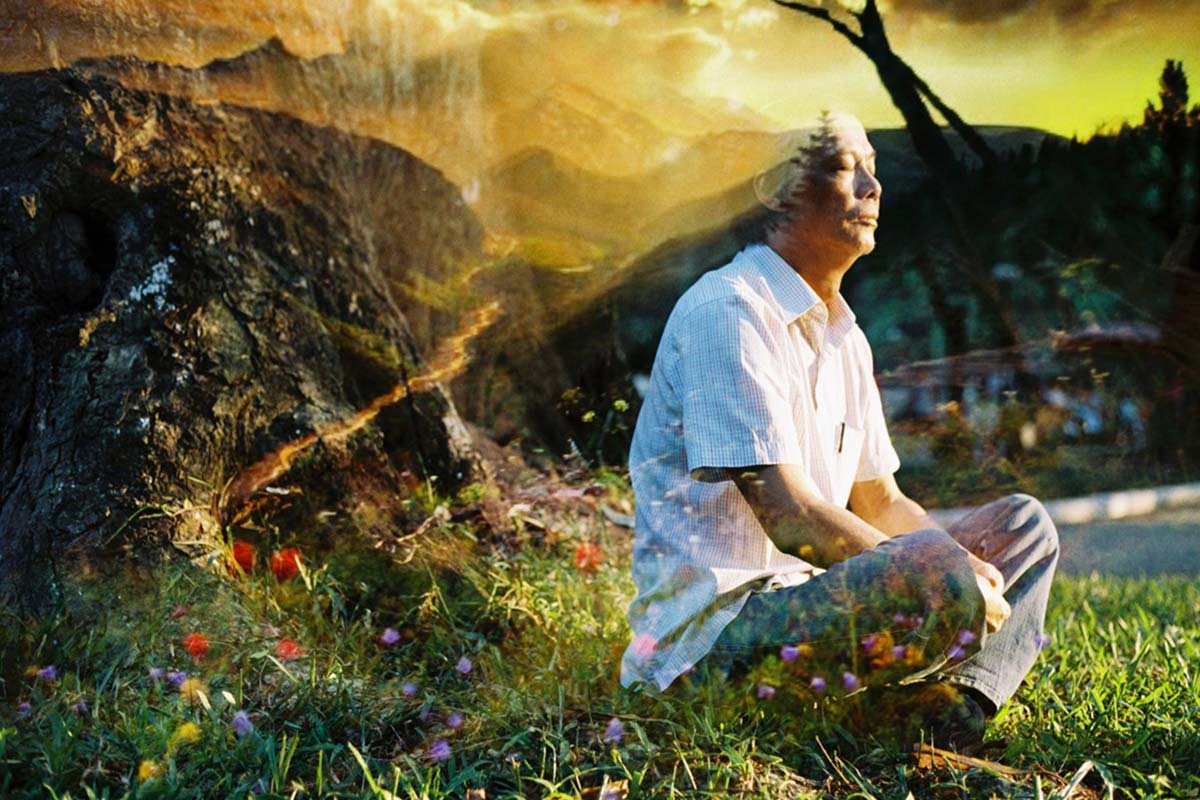
Maika Elan is a documentary photographer based in Hanoi, Vietnam who has interests in social issues. She won the 1st prize stories, Contemporary Issues, at World Press Photo 2013 for The Pink Choice series which depicts the life of LGBT couples in Vietnam.
Connect with Maika Elan on Facebook and Instagram.
